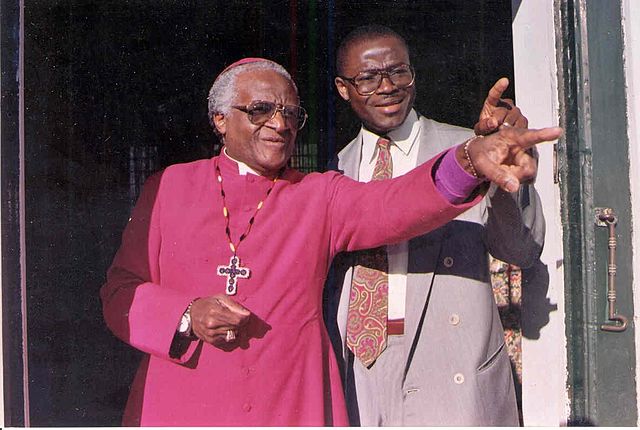
Photographer Lord Ru, image via Wikimedia Commons (CC BY-SA 4.0)
Today’s hymn from Sing Praise is ‘Like a candle flame’ by Graham Kendrick. It’s a simple, gentle song of the Nativity, at least at the start – ‘Flickering small in our darkness, uncreated light shines through infant eyes’. The second verse gives a hint that there is more to come from this miraculous baby: ‘Can this tiny spark set a world on fire?’
The last verse bursts forth in splendour: ‘Yet his light shall shine from our lives, Spirit blazing, as we touch the flame of his holy fire’. For through Christ’s resurrection and the sending of the Holy Spirit he not only brings the light of God’s truth and love to the world, but sometimes too the ‘blazing’ of signs of power.
Those who stay at the manger miss the real implications of the birth. Just this morning we heard of the death on Christmas Day of Archbishop Desmond Tutu, and our vicar referenced this in his sermon on St Stephen, the first Christian martyr whose feast day we celebrate. Tutu wasn’t a martyr in the sense of being killed for his faith, but he did share the martyrs’ courageous faith that meant preaching the truth (in his case, the truth of the equality of black and homosexual people) at a risk to his own job and possibly life. Here was a man in whom the Spirit of Jesus blazed.